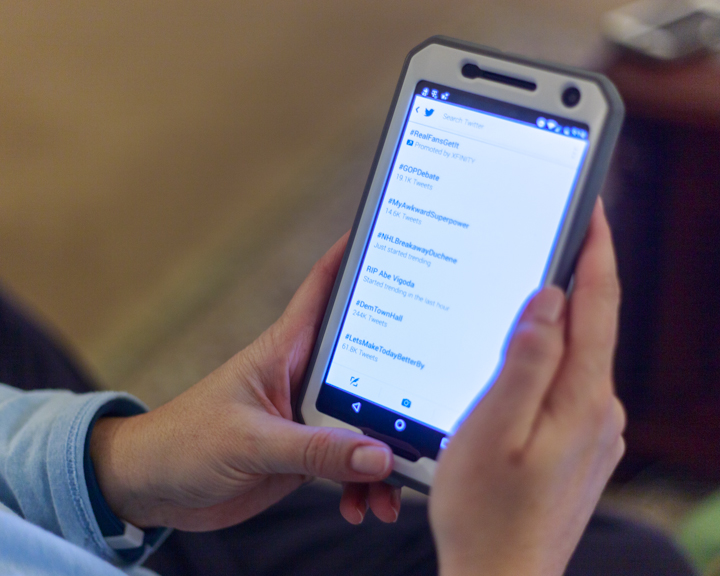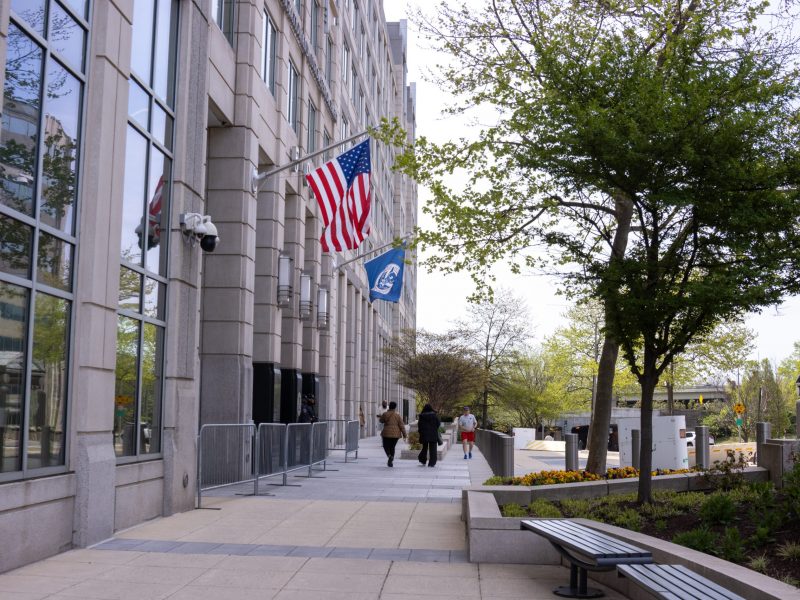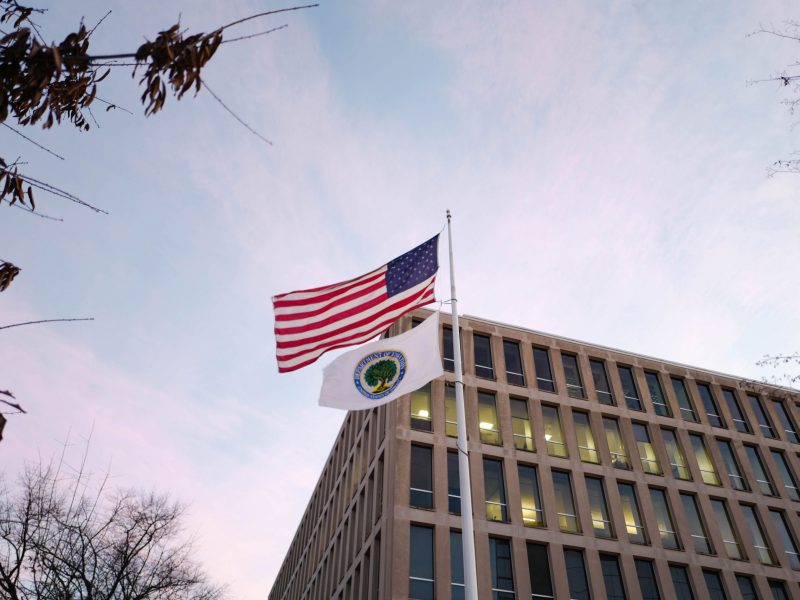Bergis Jules and Ed Summers developed a vision to efficiently amass millions of tweets and make them more accessible to the public after the social media explosion that followed Michael Brown’s death in August 2014.
“The images and the videos were so powerful,” said Jules, the university and political papers archivist at the University of California, Riverside. “That got me thinking … we need to try and capture this as best as we can.”
A year and a half later, this university’s Maryland Institute for Technology in the Humanities — in collaboration with UC Riverside and Washington University in St. Louis — announced Jan. 20 a $517,000 two-year grant from the Andrew W. Mellon Foundation for their “Documenting the Now: Supporting Scholarly Use and Preservation of Social Media Content” project.
The plan for the Web application is to enable users to search hashtags, keywords and user handles to collect tweets and provide a platform for the data to be analyzed and stored, Jules said. He added there is also interest in extracting the digital content in tweets, such as videos and photos.
The grant will mainly fund hiring Web developers, a designer and a project coordinator, said Summers, the project’s technical leader and the university institute’s lead developer.
While social media archiving is not a new concept, what will set this project apart, Jules said, is its projected accessibility.
“The people mostly doing this right now are people with a high level of technical skills. …These tools are in places where not a lot of people can get to it,” said Jules, a co-principal investigator with the project. “We want to build something that will be really easy for people.”
During the events in Ferguson, Summers collected more than 13 million tweets and teamed up with Jules to begin planning the project. The two later sought out Washington University as a collaborator after seeing its involvement and “Documenting Ferguson” archive, Summers said.
While there is potential for the project to expand to other social media platforms, Summers said the plan is currently focused on Twitter, for which a major research tool only allows people to search tweets posted within the past seven days.
“A lot of [Twitter] content is ephemeral,” Summers said. “It’s there and then it disappears.”
Chris Freeland, a co-principal investigator with the project and Washington University’s associate university librarian, said one of the most exciting aspects of the Web application is that it will allow people to conduct research more easily.
“Really what we’re envisioning with the ‘Doc Now’ application is an environment where scholars can be using this tool for their research on their own topics,” Freeland said.
To get informed feedback from potential users, the team has also created an 18-member advisory board of scholars, including activists, journalists, librarians and software developers, Jules said. The board will meet once virtually in the spring, once in person this summer and again in 2017.
“We wanted a good mix of people because they’re actually going to help up develop the application,” Jules said.
The team hopes to have a demo to present to the advisory board in late spring or early summer, Jules added.



